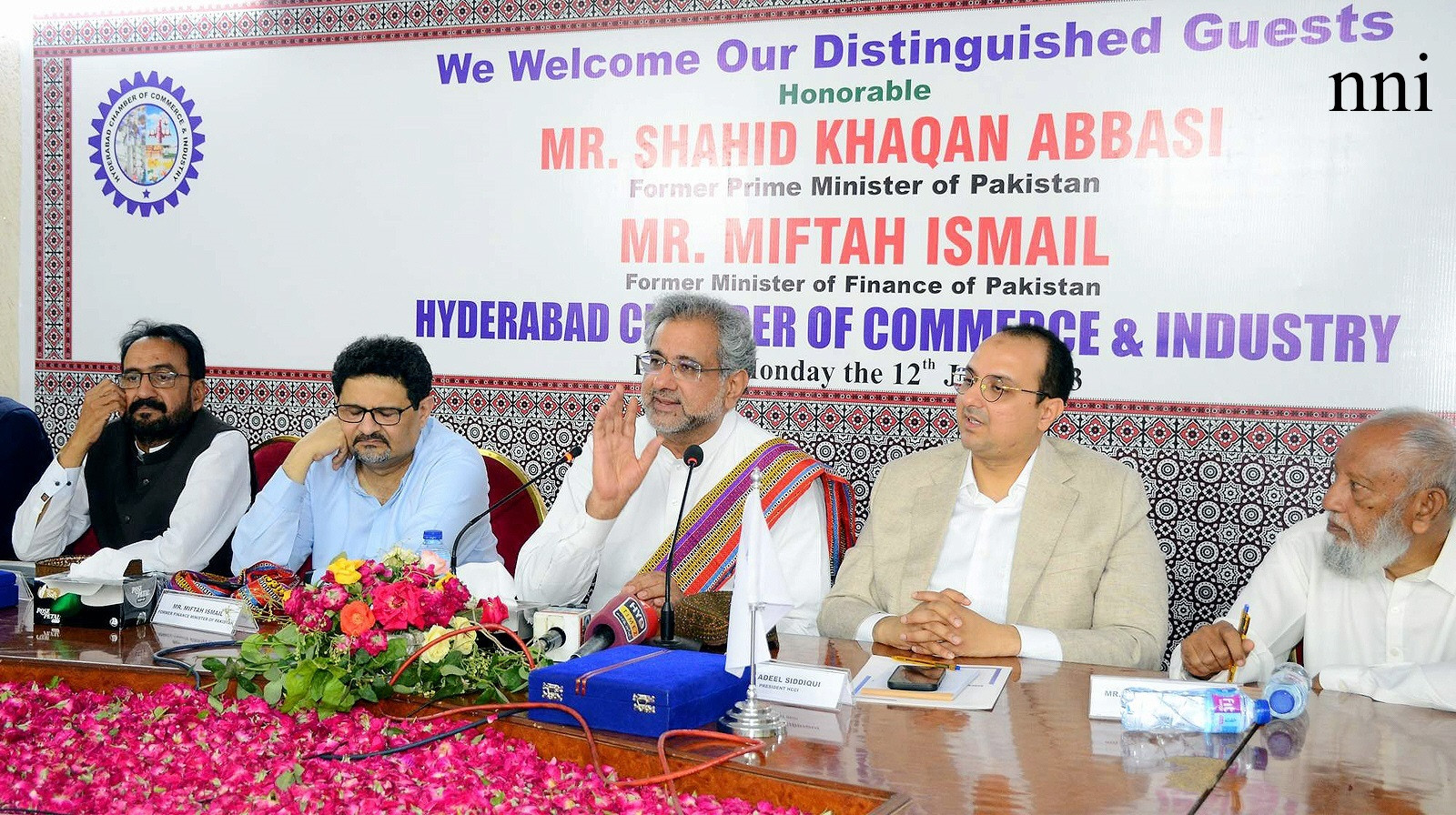
Former prime minister Shahid Khaqan Abbasi has criticised the prevailing system of governance in Pakistan, stating that it has failed the country and its people over the past 75 years.
“Despite different political parties coming to power in the last two years, including the transition from the Pakistan Tehreek-e-Insaf to the Pakistan Democratic Movement's government, they have not effectively addressed the nation's problems,” Abbasi said while addressing a seminar titled 'Reimagining Pakistan' here on Monday.
He expressed skepticism that even in future elections, the same individuals would return to power without providing adequate solutions to the issues faced by the common people.
Abbasi emphasised the need for a change in the existing system, which he argued lacked both capacity and vision. He criticised the political, military, judicial and business leadership for their apparent indifference towards the country's well-being.
While recognising the merits of the 1973 Constitution of Pakistan, he called for academic research to assess if the law truly served the betterment of the people or merely facilitated governance for the rulers.
The former premier urged the public to question their elected representatives about their extravagant expenses, including luxury vehicles, fuel costs, and a large number of security guards.
Abbasi argued that Pakistan was facing numerous challenges that were intensifying each day, necessitating a re-imagination of the country.
He expressed reservations about the creation of new provinces within existing provinces, predicting that Punjab would also face fragmentation. He believed that governing a province with a population of 120 to 130 million, higher than the population of approximately 80% of countries in the world, would be difficult.
Abbasi suggested that, at the very least, there should be a devolution of authority from provinces to cities to improve administration.
Former finance minister Miftah Ismail deplored that only one per cent elite had been ruling the country to the detriment of the 99% population of the controlled people.
He said while attention was often diverted to the conflict of interests among the sub-nationalities, sects and religions in Pakistan, the tentacles of the elite and consequences for the overwhelming majority of the people were mostly overlooked.
"... even after 75 years of independence, we have failed to liberate the majority of Pakistanis from hunger, thirst and ignorance."
He argued that there were also no serious linguistic issues among the people Pakistan who speak the native languages. "The real issue is of the English speaking elite which get better career prospects and the local languages speaking deprived people."
Ismail explained that circular debt was not a debt rather it was accumulated losses suffered by the government. According to him, former president late Gen Pervez Musharraf left the circular debt at Rs100 billion in 2008 which the Pakistan Peoples Party's government increased by five times to Rs 504 billion by 2013.
The PML-N's government, which followed, further enhanced that debt close to Rs1,100 billion while the Pakistan Tehreek-e-Insaf's government left it at Rs2,350 billion in just three-and-a-half years.
"This reflects poor performance of all the governments one after the other."
Sharing the statistics which reflected poverty and its implications for the children, he told that 40.2% children of up to five years of age were malnourished while another 17.7% were underweight. “Some 40 among 1,000 newborns die at birth and 42% women suffer from iron deficiency during pregnancy, which can be addressed through medical treatment and nutrition.”




1725967717-0/Untitled-design-(3)1725967717-0-165x106.webp)


1730543683-0/Express-Tribune--(3)1730543683-0-270x192.webp)

1730531553-0/Express-Tribune--(1)1730531553-0-270x192.webp)








COMMENTS (1)
Comments are moderated and generally will be posted if they are on-topic and not abusive.
For more information, please see our Comments FAQ